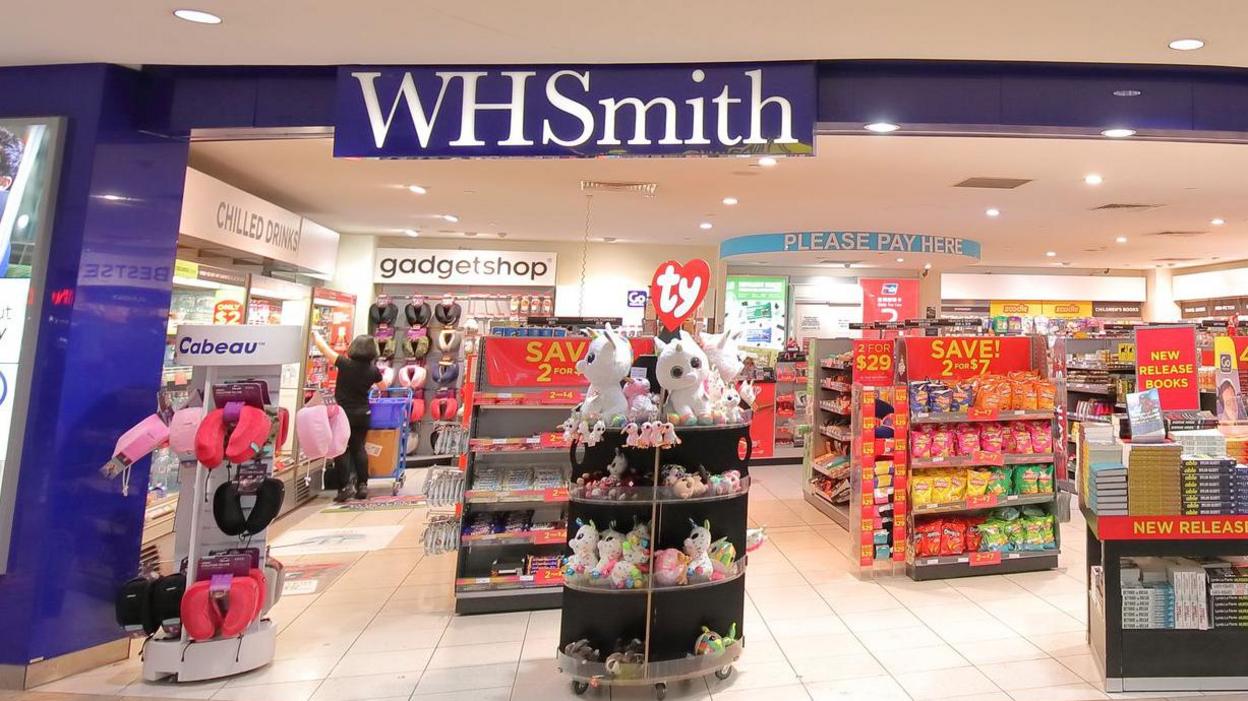Shares in WH Smith experienced a dramatic decline following the disclosure of a significant accounting miscalculation that has rattled investors and raised questions about the company’s internal controls. The retail group, best known for its presence in airports, train stations, and high streets across the United Kingdom and internationally, saw its market value drop sharply after admitting to a financial oversight that inflated reported earnings.
The announcement sent shockwaves through the investment community, with WH Smith’s stock price plummeting by more than 40% in early trading. Analysts described the situation as one of the most severe financial reporting issues the company has faced in recent years. The scale of the error, coupled with the lack of early detection, has left many stakeholders concerned about governance and the reliability of WH Smith’s future financial statements.
According to initial reports from the company, the error originated from a misclassification of certain expenses in its financial records. While the full details have yet to be disclosed, early indications suggest that operational costs linked to international subsidiaries were improperly recorded, leading to an inflated operating profit figure in previous statements.
WH Smith emphasized that the discrepancy was not the result of fraudulent activity but rather a technical error in accounting processes. Nevertheless, the correction of this mistake has had a substantial impact on reported earnings, forcing the retailer to revise its profit guidance and restate prior financial results.
The market’s response was swift and unforgiving. Within hours of the announcement, WH Smith’s shares were in freefall, wiping hundreds of millions of pounds from its market capitalization. This sharp decline reflects the level of trust investors place on accurate financial reporting and the severe consequences when that trust is broken.
Financial analysts observed that the significant decline in stock prices highlights the vulnerability of equity markets to management failures, especially in a context where openness is crucial. It has been reported that numerous institutional investors have demanded a comprehensive examination of the firm’s accounting methods and the establishment of more robust internal control systems to avert comparable problems down the line.
Beyond the immediate market impact, the accounting error could have longer-term implications for WH Smith’s business operations and strategic plans. The company has been actively expanding its footprint in international travel retail, capitalizing on the resurgence of global travel after the pandemic. Any doubts about its financial stability or reporting accuracy could slow down investment and hinder its ability to secure favorable financing for future projects.
Additionally, suppliers and partners may adopt a more cautious stance toward the retailer until confidence is fully restored. This kind of reputational damage can be difficult to repair and often takes months, if not years, to overcome.
The incident at WH Smith serves as a stark reminder of the importance of robust accounting systems and effective corporate governance. While accounting errors are not unheard of in large organizations, the scale of this miscalculation and its impact on shareholder value highlight systemic weaknesses that regulators and auditors are likely to scrutinize closely.
Retailers, particularly those with complex international operations, face heightened challenges in maintaining accurate financial records. Currency fluctuations, varied tax regimes, and differences in accounting standards across regions can all contribute to errors if not managed effectively. Industry experts expect that this case will prompt many retail firms to reassess their financial reporting frameworks to avoid similar pitfalls.
As a reaction to the crisis, the leadership at WH Smith has committed to complete openness and collaboration with the ongoing probes. The company has declared the immediate start of an independent examination to pinpoint the underlying reasons for the mistake and suggest corrective actions.
Senior leaders have released statements showing remorse about the event, assuring stakeholders that efforts are underway to enhance internal controls and rebuild trust with investors. Despite the organization’s assertion that the mistake was accidental and not indicative of widespread financial instability, the current task is to prove that this was a singular occurrence rather than a sign of more profound structural problems.
For shareholders, the immediate concern remains the substantial erosion of value following the announcement. Analysts predict that volatility will continue in the short term as the market processes the implications of the restated earnings and revised forecasts. Some experts argue that the share price may recover partially if the independent review concludes swiftly and no additional discrepancies are uncovered.
However, the journey toward a complete recovery is expected to be intricate. Investor confidence frequently recovers more slowly than stock values, especially when challenges involve trust and openness. As WH Smith endeavors to regain its reputation, consistently achieving positive results in the upcoming quarters will be vital for regaining trust.
Even with the ongoing challenges, WH Smith continues to be a major entity in the retail industry, due to its varied business structure and solid international reach. Should the company successfully manage this difficult period—by tackling internal shortcomings, improving management, and maintaining transparent communication with stakeholders—it could become stronger over time.
However, this incident serves as a warning story for businesses in various sectors: in a time of increased investor attention and regulatory supervision, getting the financial numbers right is essential. Even small errors, if amplified by scale and timing, can lead to significant consequences that reach well beyond just financial statements. For WH Smith, the priority now is on managing, fixing, and restoring confidence—a journey demanding thorough measures and complete openness in the upcoming months.




